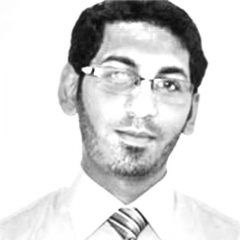The controversial Indian Citizenship Amendment Act (CAA) 2019 is a sign of extremist propensities of the current Indian government. Extremist proportions of the Bharatiya Janata Party (BJP), in the quest for Hindutva are driving India into a Hindu Rashtra, where minorities-especially Muslims, are confronting the brunt of the abuse. People all over India are protesting the CAA, passed by the BJP government in Parliament in December 2019. People have recognized the CAA is communal and unconstitutional, and that CAA and all India National Register of Citizens (NRC) threaten to turn Muslim citizens into “infiltrators” and non-Muslim citizens into “refugees.” In other words, the law takes steps to make Muslims stateless in their very own nation. As of now, confinement centers are being developed everywhere in India to host such individuals who will be proclaimed dubious residents.
The identity-making is a conscious-unconscious process of social engineering, within which, society is structured and re-structured in accordance with the demands of the dominant elite middle class. This is done through discourse making and data manipulation. The dominant social elite middle class creates a system of authoritative values and financial resource distribution to condition a certain pattern of socio-political interaction that helps establish and prioritize the masses in a specific identity construct. From 1998-2004 and 2014-2018, soft Hindutva was introduced by creating a Hindu vote bank and a conducive environment for its survival. Nationalist discourses of patriotism and security such as cow protection, Ghar wapsi and Shuddi were used. The 2019 electoral victory compelled the BJP to implement hard Hindutva. This is evident from hardliner policies such as Three Talaq, revocation of Article 370 and 35-A and the Babri Masjid verdict. Despite these controversial and divisive policies, Modi’s vote bank is increasing; from 31 percent in 2014 to 33 percent in 2019.
The Constitution guarantees that the people of India vote and elect their Government and enjoy power over it. It does not allow the Government to select the people who are allowed to vote and elect Governments. However, CAA does precisely the inverse. It damages all of these key qualities and spreads the wings of “Hindutva”, by making religion the way to citizenship. The enactment – which adjusts the Citizenship Act of 1955 – tears down the comprehensive, composite vision, which forefathers of India once had. The people’s movement against CAA and all-India NRC aims to protect India’s Constitution, democracy, and unity.
The purpose of the National Population Register (NPR) was to make a thorough database of each “usual citizen” of India. A “usual citizen” is an individual who has lived in a territory for a half year or an individual who intends to live in an area for the following a half year or more. This implies outsiders living in India would be incorporated in the NPR. The NPR is the initial move towards the making of a questionable NRC that is being advocated by BJP. The activity left almost 2,000,000 individuals from Assam off the register.
In the wake of winning the last elections, Prime Minister Narendra Modi’s BJP has made it certain that it is happy to overlook Indian Muslims. Even the Supreme Court of India granted a contested site in the town of Ayodhya for the building of the temple of the Hindu god Ram. The contested land was the site of the sixteenth century Babri Masjid mosque, which was demolished by irate Hindu crowds in 1992 guaranteeing that a Ram sanctuary originated before the mosque. Moreover, the enactment of CAA has shown the awful human expenses of isolating individuals and connecting citizenship to documentation in a nation where numerous individuals are uneducated. In this context, the CAA suggests that India needs an arrangement in accordance with international law, and not a law dependent on segregation and directed by a philosophy that utilizes religion for political benefits. The CAA has exposed those arsonists who do not want Muslims in India.
Enactment of CAA shows the awful human expenses of isolating individuals and connecting citizenship to documentation in a nation where numerous individuals are uneducated.
Moreover, the CAA does not enjoy the support internally as Kerela state has challenged the CAA in the Supreme Court and Punjab has also passed an Anti-CAA resolution recently. It is against Article 21 of the Constitution which gives the right to life and liberty even to non-citizens and, this legislation is against the secular ethos of India’s constitution. As Indian Justice PB Sawant remarked, “religion cannot be mixed with any secular activity of the State….encroachment of religion into secular activities is strictly prohibited.”As far as the international response to CAA is concerned, Office of the UN High Commissioner of Human Rights, US Commission on International Religious Freedom and International Commission of Jurists has also condemned the legislation and termed it “fundamentally discriminatory” in nature.
Furthermore, discrimination based on nationality or ethnic origins, something that CAA does, would fall in violation of the International Convention for the Elimination of Racial Discrimination. The UN Office of the High Commissioner of Human Rights has also affirmed this view. The CAA would also be in violation of the customary obligation of Non-Refoulment and statelessness.
While proving a way forward for Pakistan, Hindutva ideology of the BJP Government and brazen policy moves have put India in the global spotlight and damaged its reputation as the world’s biggest democracy. This provides a historic opportunity for Pakistan to reset the dynamic in its relationship with India. But for Pakistan to do this, it will have to improve its international credibility on Human Rights. It would be difficult for Pakistan to lobby or advocate for India’s minorities when our own minorities are treated poorly. To this end, the incapacity of Pakistani institutions in the area of International Law is the biggest hurdle.
Adeel Mukhtar is a Researcher with Islamabad Policy Research Institute and can be reached at adeelmukhtar.ipri@gmail.com
